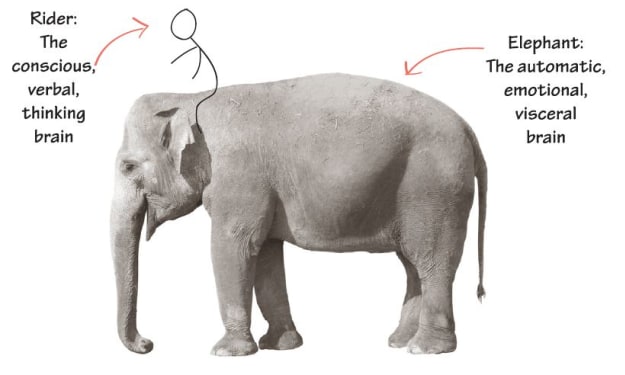Being Different
How No One Can Live for You

One of the various phenomenons present in society these days is that which pertains to conformity and abnormality. More elaborately, how we constantly desire to differentiate ourselves from the common idiot. It’s a desperate kind of attempt. It’s as if we were all in a hole that we call “People” and most of us are reaching up to the sky, scratching at the walls, using each other’s bodies to climb up in an attempt to escape conformity and the overly mediocre concept of “normal.” Those who are not attempting this torturous and potentially pointless ascent are incessantly hiding. Desiring to become one with the crowd of those we call “people” due to a bad experience with being different, they need to camouflage themselves and their abnormalities to remain in the comfortable societal accepted conformity. As you can see, I’ve been using the words “people” and “abnormalities” which need to be defined if I want to further my examination of this phenomenon. By “people,” I mean the people you do not know who you consider conformed and happy and ignorant. Normal. Those whom you desire to differentiate yourself from. By “abnormal,” I mean how you are different and how you make yourself distinguishable.
Now, I simply must tell you that the definitions of these words we use, such as “weird” and the terrifying “normal,” are awfully relative. Other cases of these relative concepts we commonly use would be sex, stupidity or even the infamous “cool.” Despite their relativity, it seems that we, as a society, have accepted definitions of what is to be “strange” and what is to be “normal.” Merriam-Webster describes normal as “usual or ordinary; not strange” or “mentally and physically healthy.” To be strange is to be different from what is usual, normal, or expected or not entirely comfortable or well. These are curious things. Merriam-Webster seems to suggest negative connotations to the words pertaining to the abnormal. Then, why do we so often jump at the possibility of being uncommon?
My theory about this is that as we are going through child development, we are told that being normal is good and that being weird is bad. Conformity is supported for a conditioned development and the Merriam-Webster definition is commonly accepted. This is where those who are different have their bad experiences, which lead them to desperately try to hide forever. Yet, as a young adult, there is a clear increasing positivity surrounding the words to describe the abnormal and bizarre. This is understandable as, at this time in a person’s life, conformity is to be rebelled against. To be weird is cool. This is when the disparity of the situation arises. What we can conclude from this progression and changes that come to these words throughout human development is that as we grow, we desire more and more to be different from everyone else.
But, we so often forget Alfred Adler’s famous quotation: “The only normal people are the ones you don’t know well.” Suggesting that everyone is different or strange in his or her own way.
This brings us to the big problem concerning this phenomenon, which many, myself included, have pondered (often causing an eight-life existential crisis, also known as teen angst): if we are all different, doesn’t that make us all the same?
Throughout my relatively brief life and experience in exploring this topic, I have only found one acceptable response to this that has marked me:
“No, because there is no one in the entirety of time and space that is living this situation you are right now. Here. This moment. Nothing can breathe for you. There is not one creature in the universe, alive or long dead, that is living your life right now. Only you are you.”





Comments
There are no comments for this story
Be the first to respond and start the conversation.